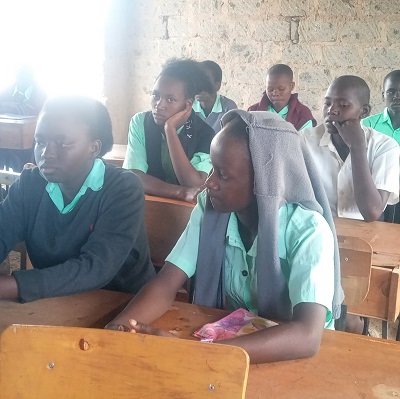Project #:
KS23-H015
Project Type:
Health and Hygiene Training Program
Project Date:
2022-08-26
The People of
5 Schools in Mwingi Central
Kitui County, Kenya
are thankful for the generous support of
Donna Verity
(Scarborough, ON)for helping train their community in health and hygiene
A message from the community
The Kathanze Secondary School community and especially its students extend our gratitude to Lifewater Canada for being there for us since your work started in Mwingi region. We cannot thank you enough for the Health and Hygiene session that followed shortly after we received a rainwater catchment system and handwashing station. We thank you for putting our students' health first. We will follow the teachings to ensure we are healthy and happy. May God bless you all.
Some community details (provided by our in-country partners)
Mwingi region in Kenya's Kitui County is a semi-arid region. Most parts of the county receive very little rain, so residents spend long hours each day hunting for water for use in their homes and at local schools. It is the struggle for water that led the residents to mistakenly never question the safety of a water source. Lifewater Canada partnered with Christ Mission to the World, a local non-governmental organization, to provide rainwater harvesting and storage systems to all 345 schools in the region. Unfortunately, residents still knew very little about maintaining their own health, hygiene and sanitation. That led Lifewater Canada to partner with STADA, a non-government organization from Kisumu County, to teach residents the importance of health, hygiene, and sanitation. The program focuses on personal hygiene which includes water treatment, and protecting the environment, including their water sources. The hour-long sessions held in schools, churches, community centres, and other locations involve everyone from a community regardless of age, gender, social, economic, or political status. Provided they are available, they show up. The interesting and interactive sessions always reveal that local people have a lot to learn, but also a willingness to learn and to improve their living situations by making small changes to their lifestyles. The changes aren't financially costly, which is good news for many families trying to survive on less than a dollar a day. The schools visited by STADA are eager to keep their students in class instead of frequent visits to the hospital to treat sicknesses caused by poor hygiene and sanitation. For the students' parents, better hygiene and sanitation translates to healthy living and less spending on hospital visits, which make the learning sessions even more welcome. Your donations enabled Lifewater and STADA to visit these communities: Kathanze Secondary School -- 29 participantsKavaliki Primary School -- 61 participantsKimongo Primary School -- 39 participantsKimongo Secondary School -- 15 participants Kiwanza Primary School -- 26 participants
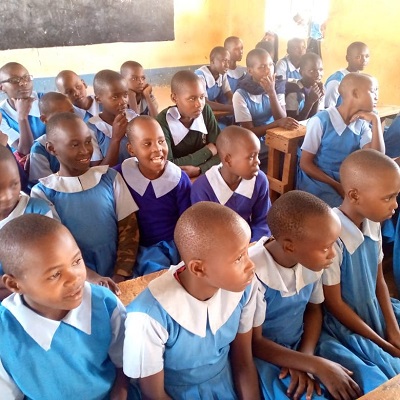
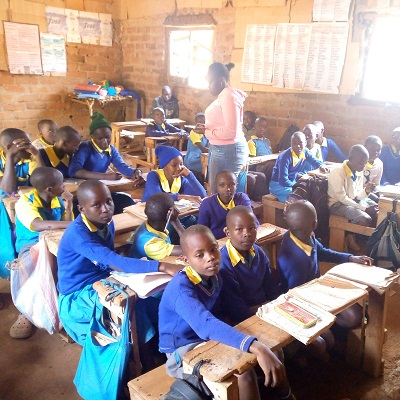
Health and Hygiene Training participants at Kimongo Primary School
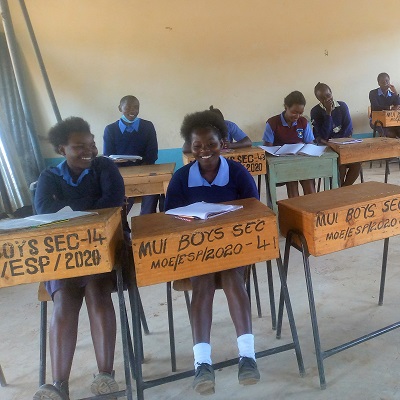
Health and Hygiene Training participants at Kimongo Secondary School
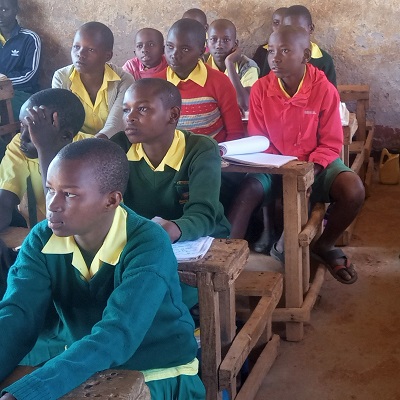
Health and Hygiene Training participants at Kiwanza Primary School
